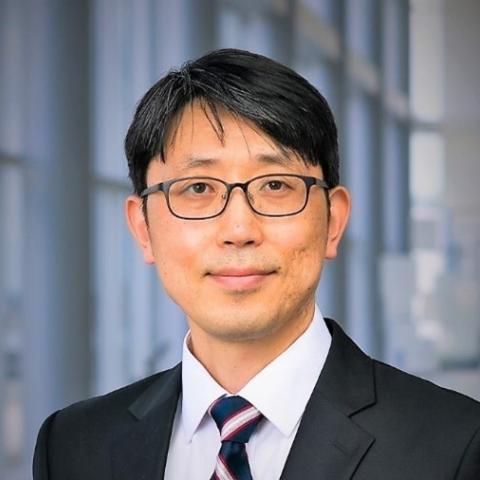
Jeon Lee, Ph.D. (Principal Investigator)
Since December 2020, Jeon Lee has been appointed as an Assistant Professor in the Lyda Hill Department of Bioinformatics. He received his Ph.D. in Biomedical Engineering from Yonsei University in South Korea (1999–2006), where he trained as a medical device developer and innovator with biomedical signal processing and machine learning (ML) expertise. He did his 1st post-doc training in the Chronic Disease Informatics Program (PI: Joseph Finkelstein, M.D., Ph.D.) at Johns Hopkins School of Medicine (2013-2014). Subsequently, he studied and developed seminal computational algorithms for big data mining while working as a post-doc and later as an Assistant Research Scientist (parallel to Assistant Professor) for the Department of Computer Science and Electrical Engineering (PI: Seung-Jun Kim, Ph.D.) at the University of Maryland, Baltimore County (2014-2015). He joined UT Southwestern Medical Center as a Computational Biologist in 2016 and led the machine learning team at the Bioinformatics Core Facility from 2018 to 2020.
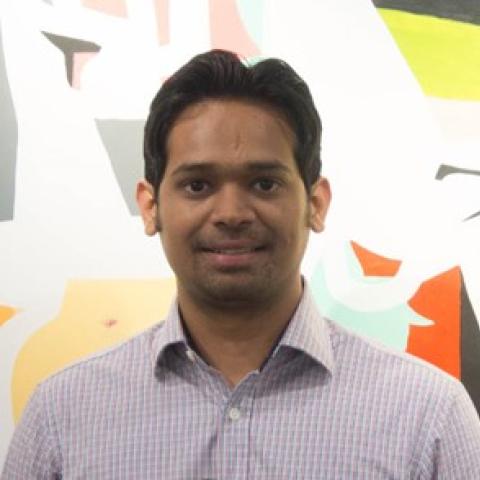
Krishna Kanth Chitta, M.S. (Computational Scientist)
Krishna received his BS in Biomedical Engineering at Vellore Institute of Technology in Vellore, India, and an MS in Biomedical Engineering from Arizona State University. He is formally trained in medical image analysis, deep learning, and computer vision with special emphasis on physics and clinical applications of MRI. After his Master’s, he worked as Senior Research Officer at Agency for Science Technology and Research (A*STAR) in Singapore for 3 Years. He has experience in developing methods for detecting and quantitating structures/lesions in MRI datasets, fluorescence microscopy images, and colonoscopy videos. He is currently developing machine learning algorithms including advanced convolutional neural networks to solve challenges in multi-modal medical image analysis.
Affiong Akpaninyang, M.S. (Computational Biologist)
Affiong received her BS in Biochemistry at The University of Texas at San Antonio in San Antonio, Texas (2016-2020), and an MS in Bioinformatics and Computational Biology from University of South Florida in Tampa, Florida (2021-2022). Her skillset includes bioinformatics, computational biology, biostatistics, R-programming, SAS, Python, and C++. She possesses 4 plus years of experience in clinical environments and is very excited to combine that with her newfound passion for Bioinformatics and Computational Biology.
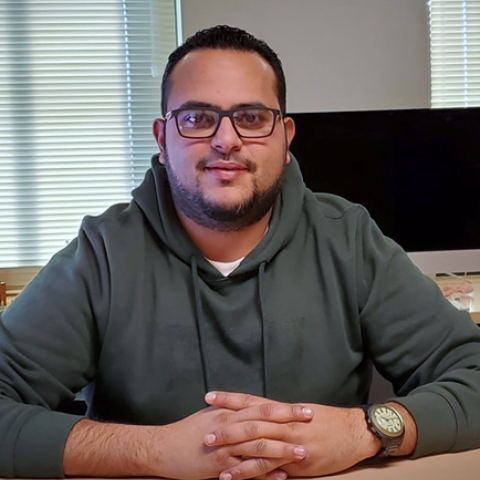
Ahmed M. Shalaby, Ph.D. (Computational Scientist)
Dr. Shalaby earned his Bachelor's and Master's degrees in Electrical Engineering in 2003 and 2009 respectively. He earned his Doctorate in electrical engineering from the University of Louisville in 2014. He has 12+ years of hands-on experience in the fields of medical image analysis and machine learning in medical application. He has worked on a variety of research projects focusing on machine learning and medical imaging. His research is helping to advance the medical understanding and imaging for Autism Spectrum Disorder, prostate cancer, and spinal cord injuries, among other areas. He has authored or coauthored more than 100 technical articles, and 5 US patents.
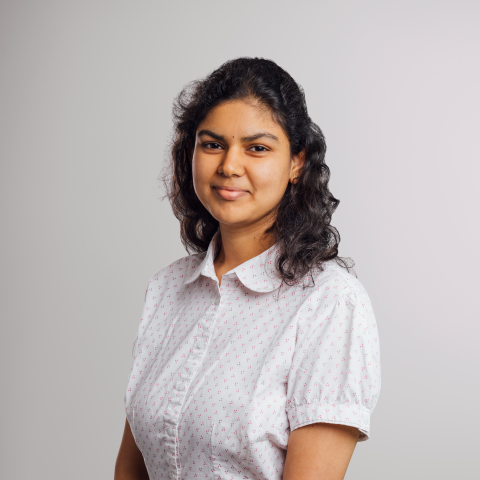
Anagha M. Krishna, M.S. (Computational Biologist)
Anagha earned her M.S. in Bioinformatics from the Georgia Institute of Technology (2023–2025), where she focused on cancer research. Her graduate work included developing a pipeline for processing and analyzing single-cell RNA-seq data from ovarian cancer patients, as well as leading a multiomics integration project to identify correlated genes and metabolites that distinguish early- and late-stage ovarian cancer.
She interned at Moderna as a Bioinformatics Software Engineer, contributing to the development of a validation framework for the Individualized Neoantigen Therapy pipeline. Prior to her graduate studies, Anagha completed her B.Tech in Computer Science and Engineering (2015–2019) in India and spent four years at Amazon Web Services, helping clients design scalable, secure, and optimized cloud solutions.
With a strong foundation in both computational and biological sciences, Anagha brings interdisciplinary expertise and a passion for applying data-driven approaches to improve human health. Outside of work, she enjoys cooking and listening to music.
Jingxuan Chen, Ph.D. (Computational Biologist II) - DSSR
Jingxuan received her Ph.D. in Bioinformatics from The University of Georgia (2018-2023), and Bachelor’s degree in Biological Science from Beijing Normal University in China (2014-2018). Jingxuan has 6+ years experience in handling large-scale next- and third-generation sequencing data (WGS, WES, and bulk RNA-seq) and HPC cluster computing. She is also experienced in developing reproducible bioinformatics workflows and evaluation of bioinformatics tools. She is proficient in scripting languages Python, R and Bash, and experienced in using Snakemake for workflow management. She is passionate about analyzing variant omics data and developing novel computational tools to support the cutting-edge cancer research, as part of DSSR.
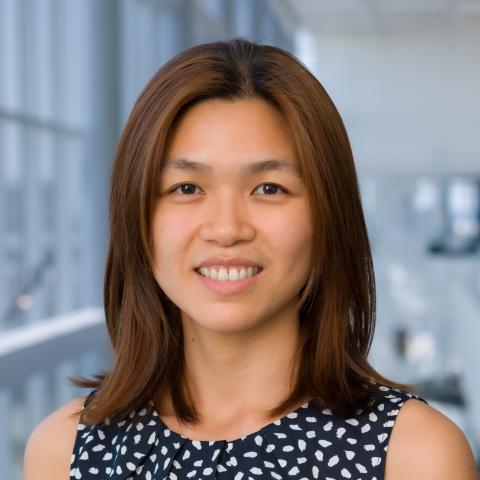
Jui Wan Loh, Ph.D. (Computational Biologist II) - DSSR
Jui Wan received her B.S. (in Biotechnology) and Ph.D. (in Microbiology and Molecular Genetics) degrees from Rutgers University in 2015 and 2021 respectively. After her Ph.D. graduation, she worked as a Research Fellow in Singapore for 3 years (at National Cancer Centre Singapore and Duke-NUS Medical School). She has experience in high-throughput data sequencing analysis, particularly in genomics and transcriptomics, both at bulk and single-cell level. In her free time, she enjoys swimming and hiking.
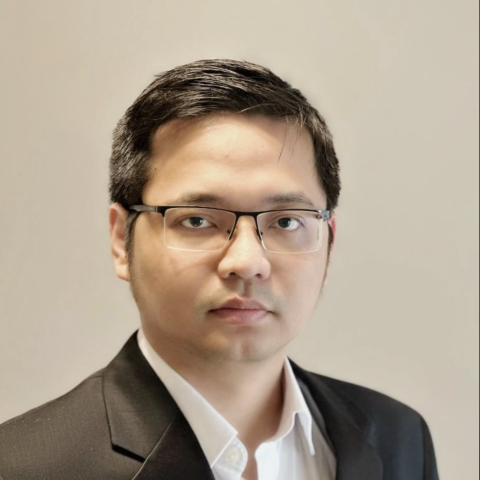
Ngoc Khoi Dang, M.S. (Computational Biologist II) - DSSR
Ngoc Khoi Dang (Khoi Dang) earned his Master of Science in Applied Computer Science from Virginia Tech in 2021, focusing on applying Machine Learning and Deep Learning to biological data. His master's research involved developing and implementing advanced computational methods to identify and characterize ARGs within complex microbial communities. He then worked as a Data Scientist for three years at MD Anderson Cancer Center in the Epigenetics and Molecular Carcinogenesis department. His responsibilities included creating novel algorithms to detect and categorize DNA repair mechanisms and analyzing bulk RNA sequencing and CUT&RUN data in high-performance computing environments. In 2025, he joined the DSSR team at UT Southwestern Medical Center as a Computational Biologist II. His current interests include single-cell data analysis, especially the development and deployment of robust computational pipelines, including containerization for reproducibility and scalability, to analyze these complex datasets.
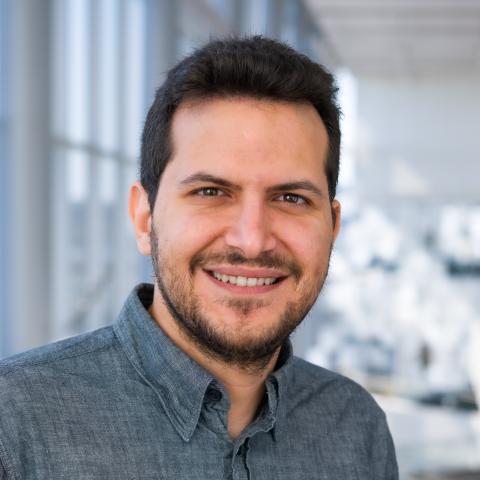
Ermis-loannis Michail-Delopoulos, M.S. (Computational Biologist I) - DSSR
Ermis holds an integrated Bachelor’s and Master’s degree in Biotechnology from the Agricultural University of Athens (2019) and a Master’s degree in Bioinformatics from KU Leuven University in Belgium (2024). Throughout his studies, he focused on NGS analyses (e.g., bulk RNA-seq and scRNA-seq), as well as microbial interactions and microbial association networks, where he developed a Cytoscape plugin to enhance their visualization and exploration. Additionally, as a Computational Biologist at the Lab of Microbial Systems Biology at KU Leuven, he applied machine learning techniques to analyze and predict co-culture abundances in microbial flow cytometry data. His programming skills include Java, Python, R, and Bash. He is passionate about software development and leveraging computational tools in genetic research. In his free time, he enjoys playing video games and basketball.
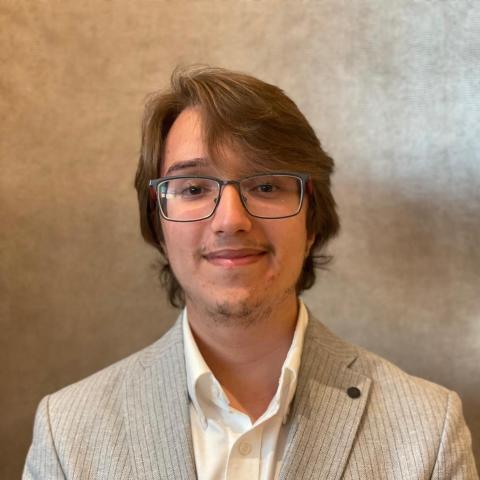
Omar Halawa, M.S. (Computational Biologist) - DSSR
Omar earned his BS in Bioinformatics (2024) and MS in Biology (2025) from UC San Diego. During his studies, he developed machine learning and 'omics tools for GenePattern, a web platform for reproducible bioinformatics, and worked on an algorithm to refine sets of genes representing pathways for RNA-seq enrichment analysis. For his Master’s research, he applied wet lab and computational approaches to explore unknown bacteriophage genes and built a pipeline for protein quantification via GFP-tagged yeast colony imaging. He is driven by a passion for computational methods and a mission to improve clinical outcomes. In his free time, he enjoys playing chess and video games.
Alumni
Hankyu (Chris) Lee
New Position: Scientist I at The Wyss Institute at Harvard University, Boston, MA
UTSW Position: Computational Biologist I
Working period: October 2023 🡪 December 2024
Master of Applied Science - Computational Biology, University of Toronto
Achisha Saikia
New Position: Bioinformatics Engineer at Children's Mercy Hospital, Kansas City, MO
UTSW Position: Computational Biologist I
Working period: July 2023 🡪 March 2025
Master of Science - Genetics, Genomics and Bioinformatics, SUNY, University at Buffalo (UB)
Khushi Ahuja
New Position: Bioinformatics Analyst II at Medical College of Wisconsin, Milwaukee, IL
UTSW Position: Computational Biologist I
Working period: September 2023 🡪 July 2025
Master of Science - Bioinformatics, Boston University